An increasing number of Americans are living paycheck to paycheck, BofA says
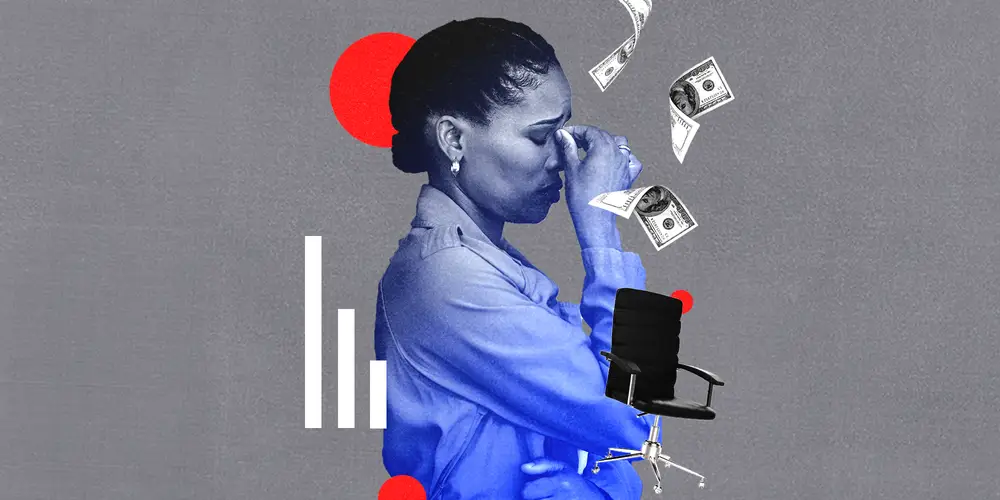
More Americans are living paycheck to paycheck than they were five years ago, with around a quarter of all households saving next to nothing from their pay each month, according to a study from Bank of America.
In a report this month, the bank analyzed internal data to estimate the percentage of households that spent most of their income on necessities, which include expenses like housing and food.
While 50% of respondents to a BofA survey said they felt themselves to be living paycheck to paycheck, the bank’s report found that around 30% of households were spending more than 90% of their income on necessary expenses, while around 25% were spending more than 95% of their income on necessary expenses, the bank said.
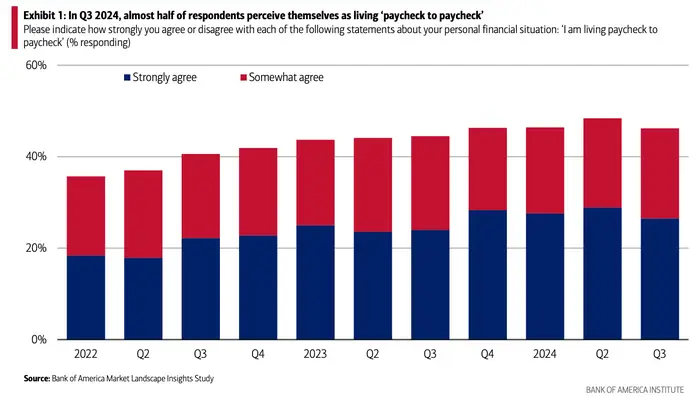
Around half of Americans described themselves as living paycheck to paycheck in the third quarter.
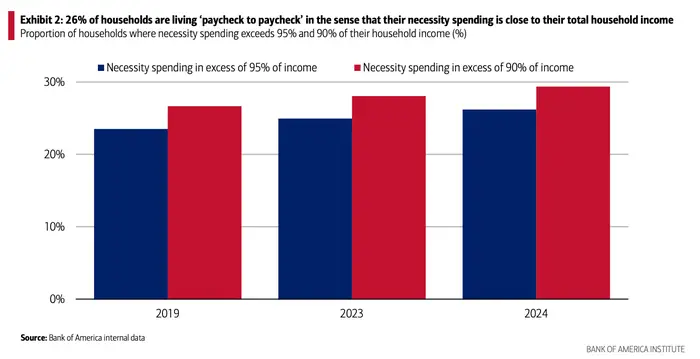
Nearly 30% of households spent more than 90% of their monthly income on necessities this year.
The share of people living paycheck to paycheck was up from the share recorded five years ago, the report said, though it didn’t specify the size of the increase.
The five-year increase was evident across all income groups. Though lower-income households were most likely to struggle to save, even some high-income earners fell into the paycheck-to-paycheck category, the bank said.
35% of households living paycheck to paycheck made less than $50,000 a year, though 20% of households living paycheck to paycheck made more than $150,000, the study said.
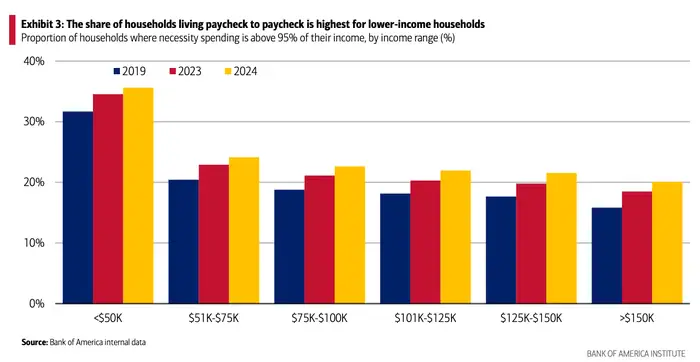
Households making less than $50,000 a year were the most likely to live paycheck-to-paycheck.
Five out of six main demographic groups saw an increase in households living paycheck to paycheck since 2019.
Older generations, though, were more likely to struggle to save at the end of the month, pointing to the retirement crisis unfolding in the US. 30% of boomers said they were spending more than 95% of their paycheck on necessities, compared to less than 20% of Gen Zers who met that criteria.
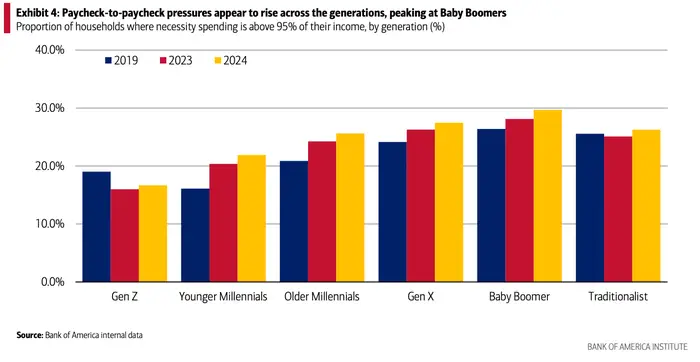
Boomers were the generation most likely to live paycheck to paycheck.
More households could be living paycheck to paycheck due to higher necessary expenses, the bank said, noting that the share of households that struggled to save differed across various regions of the US.
“In our view, the drivers could relate to households’ life cycle positions, such as having younger or larger families, as well as potentially geographic factors, including housing costs,” the bank wrote. “Many of these costs are unavoidable (they are by definition necessary) and it is unlikely these households would be able to reduce their spending without some major changes to, for example, where they live.”
Though the pace of inflation has cooled, the accumulated increase in prices has raised costs overall, with urban consumer prices up 23% over the last five years, according to Federal Reserve data.
Housing costs, another major necessary expense, have also climbed, with the median home sales price up 28% over the last five years, Census data shows. With rising prices comes larger mortgages and higher mortgage payments as borrowing costs remain elevated after years of tightening Fed policy.
Other studies have pointed to increasing feelings of financial insecurity among Americans. More than a third of US workers were estimated to be living paycheck to paycheck, according to a survey conducted by Bankrate in August. Meanwhile, 30% of respondents in a separate Bankrate survey said they expected to never be financially secure.






